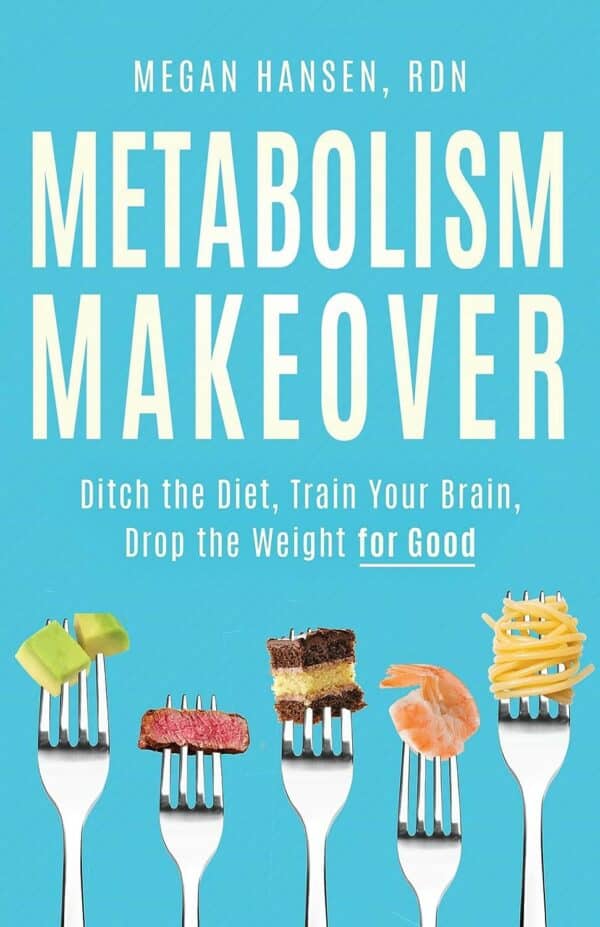Are you ready to unlock the full potential of your brain? Discover the power of nutrition in enhancing cognitive function. In this article, we will guide you on a journey to feed your brain with the right nutrients for optimal mental performance. From macronutrients to micronutrients, antioxidants to the gut-brain connection, we will explore evidence-based strategies that can boost memory, concentration, and overall brain health. Get ready to nourish your mind and unleash its limitless capabilities.
Key Takeaways

- Carbohydrates and protein are important for providing energy and maintaining brain cells.
- Micronutrients like vitamin B12, omega-3 fatty acids, vitamin D, and magnesium support brain health and cognitive function.
- Antioxidants protect brain cells from damage and reduce inflammation.
- The gut-brain connection is crucial for mental well-being, and nutrients like omega-3 fatty acids, B vitamins, and probiotics can improve mood and alleviate stress and anxiety symptoms.
The Role of Macronutrients in Cognitive Function
The role of macronutrients in cognitive function is crucial for brain health. When it comes to fueling your brain, both carbohydrates and protein play vital roles. Carbohydrates are the primary source of energy for the brain. They provide glucose, which is used by the brain cells as fuel. Complex carbohydrates like whole grains, fruits, and vegetables are especially important as they release glucose slowly, ensuring a steady supply of energy throughout the day.
Protein is essential for maintaining and repairing brain cells. It also helps in the production of neurotransmitters, which are responsible for communication between brain cells. Including lean sources of protein such as poultry, fish, beans, and nuts in your diet can support optimal cognitive function.
In addition to providing energy and supporting brain cell maintenance, both carbohydrates and protein aid in the synthesis of neurotransmitters like serotonin and dopamine. These neurotransmitters play a crucial role in regulating mood, memory, and overall cognitive function.
Transition: While macronutrients are important for brain health, there are also key micronutrients that you should be aware of to ensure optimal cognitive function without compromising on freedom or choices when it comes to nourishing your brain.
Key Micronutrients for Brain Health

Make sure you’re getting enough key micronutrients for optimal brain health. Micronutrients are essential vitamins and minerals that play a crucial role in supporting cognitive function, memory, and alertness. By incorporating these nutrients into your diet, you can enhance the overall health of your brain.
Here are some key micronutrients that are important for brain health:
| Micronutrient | Food Sources |
|---|---|
| Vitamin B12 | Fish, meat, dairy products |
| Omega-3 fatty acids | Fatty fish (salmon, mackerel), flaxseeds, chia seeds |
| Vitamin D | Sunlight exposure, fortified foods (milk, cereal) |
| Magnesium | Dark chocolate, nuts (almonds), spinach |
Vitamin B12 is crucial for maintaining healthy nerve cells and cognitive function. Omega-3 fatty acids have been linked to improved memory and mood regulation. Vitamin D plays a role in protecting brain cells and reducing the risk of cognitive decline. Lastly, magnesium supports proper neuron functioning.
In addition to these micronutrients, it’s also important to stay hydrated for optimal brain health. Dehydration can impair cognitive function and lead to decreased alertness. Make sure to drink plenty of water throughout the day to keep your brain properly hydrated.
Ensuring an adequate intake of these key micronutrients and staying hydrated is essential for promoting optimal brain health and functioning.
Transition: Now that we’ve covered the importance of key micronutrients for brain health let’s explore the impact of antioxidants on cognitive performance without delay.
The Impact of Antioxidants on Cognitive Performance
Transitioning to the impact of antioxidants on cognitive performance, it’s important to understand how these compounds can positively affect brain health. Antioxidants are powerful substances that help protect our cells from damage caused by harmful molecules called free radicals. When it comes to brain health, antioxidants play a crucial role in preventing cognitive decline and promoting optimal cognitive function.
Research has shown that consuming antioxidant-rich foods can have significant benefits for the brain. These foods include berries, leafy greens, nuts, and seeds. By incorporating these foods into your diet, you provide your brain with essential nutrients that help combat oxidative stress and reduce inflammation.
Antioxidant-rich foods contain various antioxidants such as vitamin C, vitamin E, and flavonoids. These compounds work together to neutralize free radicals and protect the brain against age-related decline.
In addition to their direct impact on brain health, antioxidants also promote overall well-being by supporting cardiovascular health and reducing the risk of chronic diseases like Alzheimer’s and dementia.
As you continue to explore the connection between nutrition and cognitive function, it’s important to delve into another fascinating aspect: the gut-brain connection. How your diet affects your mental well-being is a complex topic that highlights the interconnectedness of our body systems.
Gut-Brain Connection: How Your Diet Affects Mental Well-being

Exploring the gut-brain connection reveals how diet impacts mental well-being. The gut-brain axis refers to the bidirectional communication between the central nervous system and the gastrointestinal tract. Research has shown that there is a strong link between nutrition and mental health, with certain dietary factors influencing mood, cognition, and overall brain function.
| Nutrient | Impact on Mental Health |
|---|---|
| Omega-3 fatty acids | May reduce symptoms of depression and anxiety. |
| B vitamins | Essential for neurotransmitter synthesis, supporting cognitive function. |
| Probiotics | Beneficial bacteria in the gut can improve mood and alleviate symptoms of stress and anxiety. |
| Magnesium | Plays a crucial role in regulating neurotransmitters involved in mood regulation. |
The gut-brain axis works through various mechanisms including immune activation, neurotransmitter production, and neuroendocrine signaling. It is important to nurture this connection by consuming a balanced diet rich in nutrients that support both gut health and brain function.
As you move forward in your quest for optimal cognitive function, it’s time to explore foods that boost memory and concentration. These foods contain specific nutrients that have been linked to improved cognitive performance. By incorporating these into your diet, you can fuel your brain with the right nutrients for enhanced focus, memory retention, and overall mental clarity without following any strict regimen or plan
Foods That Boost Memory and Concentration
Are you looking for ways to improve your focus and enhance your memory? In this discussion, we will explore the power of superfoods that can help you stay sharp and concentrated. Additionally, we’ll dive into the nutrients known for their memory-enhancing properties and provide you with some brain-boosting dietary tips to optimize your cognitive function. So, let’s discover how certain foods can support your mental performance!
Superfoods for Focus
Eating blueberries can improve focus and concentration. These little berries are packed with antioxidants that protect the brain from oxidative stress, reducing inflammation and improving overall cognitive function. But blueberries aren’t the only superfoods for productivity and mental clarity. Here are three other powerhouse foods to fuel your brain:
-
Dark chocolate: Indulging in a small piece of dark chocolate can boost blood flow to the brain, enhancing alertness and attention.
-
Fatty fish: Rich in omega-3 fatty acids, such as salmon or sardines, these fish provide essential nutrients for brain health, improving memory and focus.
-
Turmeric: This vibrant spice contains curcumin, which has been shown to enhance mood and reduce mental fatigue.
Memory-Enhancing Nutrients
Boost your memory and mental sharpness by incorporating these essential nutrients into your daily routine. When it comes to foods for memory improvement, there are several options that can help enhance cognitive function. First, omega-3 fatty acids found in fatty fish like salmon or supplements such as fish oil have been shown to improve memory and reduce cognitive decline. Second, antioxidants like vitamin E found in nuts, seeds, and leafy greens can protect brain cells from damage caused by free radicals. Lastly, the B vitamins found in whole grains, meat, eggs, and dairy products support brain health by aiding in the production of neurotransmitters. By including these nutrients in your diet regularly, you can give your brain the fuel it needs to function at its best.
Now that you’ve learned about memory-enhancing nutrients, let’s dive into some brain-boosting dietary tips that will further enhance your cognitive function without taking any additional steps.
Brain-Boosting Dietary Tips
Now that you have learned about memory-enhancing nutrients, let’s explore some brain-boosting dietary tips. While supplements can be helpful, it’s important to remember that a balanced diet is the foundation of optimal cognitive function. Studies have shown that certain foods and nutrients can support brain health as we age.
Firstly, omega-3 fatty acids found in fish oil or flaxseed oil have been linked to improved cognitive function and a reduced risk of dementia. Additionally, antioxidants like vitamins C and E, found in fruits and vegetables, help protect brain cells from damage caused by free radicals.
Furthermore, consuming adequate amounts of B vitamins (especially folate, vitamin B12, and vitamin B6) may help maintain cognitive abilities. These vitamins can be obtained from sources such as leafy greens, eggs, lean meats, and fortified cereals.
Transition: Now that you are aware of the benefits of specific nutrients for your brain health as you age…
Dietary Habits for Long-term Brain Health

In order to support optimal cognitive function, it is important to ensure that you are consuming key nutrients for cognition. These nutrients include omega-3 fatty acids, antioxidants, B-vitamins, and vitamin D. Research has shown that a diet lacking in these key nutrients can have a negative impact on cognitive performance and increase the risk of developing cognitive decline and dementia. By making lifestyle changes such as incorporating these key nutrients into your diet and adopting healthy eating habits, you can support long-term brain health and enhance your cognitive abilities.
Key Nutrients for Cognition
Take a moment to consider which key nutrients are essential for optimizing your cognitive function. Nutrition plays a crucial role in brain health, and nutrient deficiencies can negatively impact cognitive abilities. To boost your brainpower, incorporate foods rich in omega-3 fatty acids, such as fatty fish or flaxseeds, as they have been linked to improved memory and overall brain function. Additionally, antioxidants found in fruits and vegetables help protect the brain from oxidative stress. Don’t forget about B vitamins like folate and vitamin B12, which support proper nerve function and memory. While a healthy diet is typically sufficient to meet these nutrient needs, some individuals may benefit from brain-boosting supplements that contain ingredients like ginkgo biloba or phosphatidylserine. By nourishing your body with these important nutrients, you can enhance your cognitive performance.
A poor diet not only affects our physical health but also takes a toll on our mental well-being. The impact of an unhealthy diet goes beyond just feeling sluggish; it can impair cognitive function too. When we regularly consume processed foods loaded with added sugars and unhealthy fats, it can lead to inflammation in the body, including the brain. Chronic inflammation has been linked to impaired cognition and an increased risk of neurodegenerative diseases like Alzheimer’s. Moreover, diets high in saturated fats may hamper memory formation and learning ability over time. So while focusing on key nutrients for optimal cognitive function is vital, it’s equally important to be mindful of the negative consequences an unhealthy diet can have on our brains.
Impact of Unhealthy Diet
A poor diet not only affects our physical health but also has a negative impact on our mental well-being. The impact of poor nutrition on cognitive decline is significant. When we consistently consume foods that lack essential nutrients, our brain suffers. Studies have shown that diets high in saturated fats and sugar can impair cognitive function, leading to memory problems and difficulty concentrating. Additionally, a lack of key vitamins and minerals, such as B vitamins and omega-3 fatty acids, can contribute to cognitive decline over time. These findings highlight the importance of nourishing our bodies with nutrient-rich foods to support optimal brain health. By making simple changes to your diet, you can promote better cognitive function and overall well-being.
Transitioning into the next subtopic about lifestyle changes for cognition, it’s important to explore additional strategies beyond just nutrition alone.
Lifestyle Changes for Cognition
By incorporating regular exercise into your daily routine, you can enhance your cognitive abilities and improve overall brain health. Exercise has been shown to increase blood flow to the brain, stimulate the release of growth factors, and promote neuroplasticity. But lifestyle changes for cognition go beyond just physical activity. Here are some dietary habits that can support long-term brain health:
- Consuming a Mediterranean-style diet rich in fruits, vegetables, whole grains, lean proteins (such as fish), and healthy fats (like olive oil) has been associated with better cognitive function.
- Including foods high in antioxidants, such as berries and dark leafy greens, can help protect your brain from oxidative stress.
- Adding omega-3 fatty acids found in fatty fish like salmon or walnuts may promote optimal brain function.
- Reducing processed foods and added sugars is essential since they have been linked to inflammation and impaired cognitive performance.
Making these lifestyle changes can contribute to maintaining a sharp mind well into old age.
Frequently Asked Questions
How Does Sleep Affect Cognitive Function?
Sleep affects your cognitive function by impacting sleep quality and memory retention. Sleep deprivation can have a detrimental effect on cognitive performance, impairing attention, decision-making, and problem-solving abilities. Good sleep is essential for optimal brain function.
Are There Any Specific Foods That Can Improve Mood and Reduce Anxiety?
Certain foods can improve your mood and reduce anxiety. Incorporating foods rich in omega-3 fatty acids, such as salmon and walnuts, can have a positive impact on mental health. Exercise is also known to lower anxiety levels.
Can Certain Dietary Habits Help Prevent Age-Related Cognitive Decline?
Certain dietary habits can help prevent age-related cognitive decline. Regular exercise and a balanced diet that includes fruits, vegetables, whole grains, and omega-3 fatty acids have shown to have a positive impact on cognitive function.
What Role Does Hydration Play in Brain Function?
Staying hydrated is crucial for optimal brain function. Dehydration can negatively impact cognitive performance, leading to decreased focus and attention. Make sure to drink enough water throughout the day to keep your brain healthy and functioning at its best.
Is There a Correlation Between Gut Health and Cognitive Function?
Did you know that there’s a fascinating connection between your gut health and cognitive function? It’s called the gut-brain axis, and research suggests that probiotics may positively impact cognition.
Conclusion
In conclusion, taking care of your brain health through proper nutrition is essential for optimal cognitive function. By nourishing your body with macronutrients like proteins, fats, and carbohydrates, as well as key micronutrients like vitamins and minerals, you can support brain health and improve mental performance. Antioxidants also play a crucial role in protecting the brain from oxidative stress. Additionally, the gut-brain connection highlights the importance of a healthy diet in maintaining mental well-being. So remember to feed your brain with nutritious foods to enhance memory, concentration, and overall long-term brain health.
